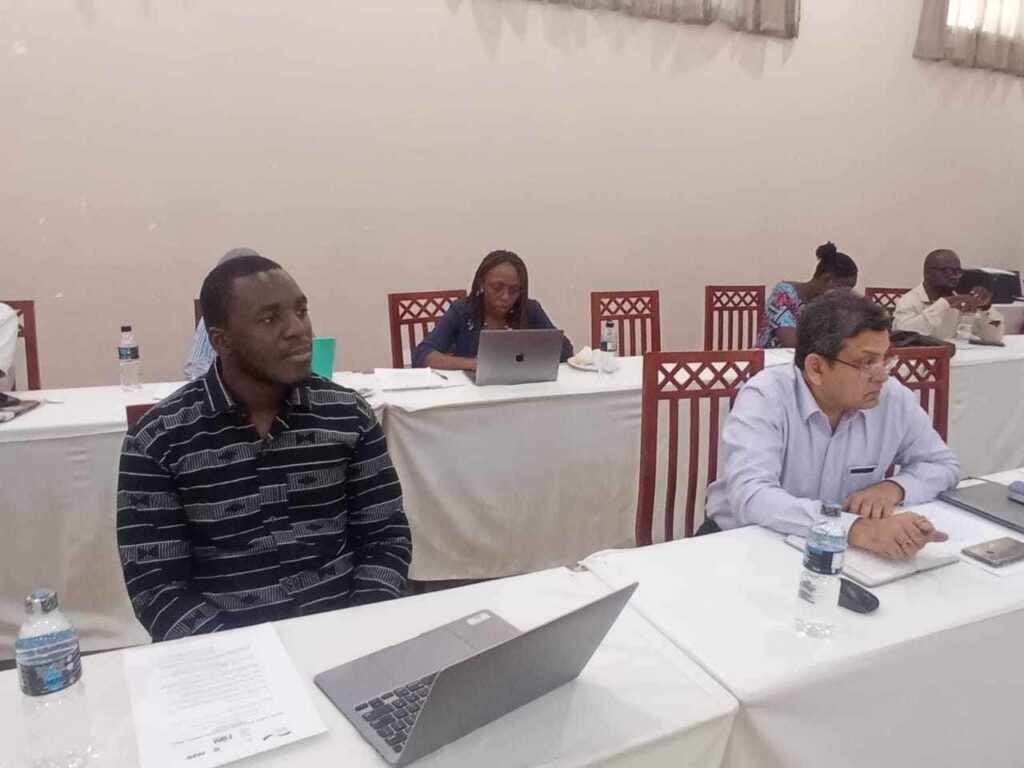
The Digitally Enabled Resilience and Nutrition Policy Innovations (DERPIn) project in Malawi has stressed the need for policy makers involved in food systems, to use digital tools to enhance their decision making in promoting resilience to challenges posed by climate change which threaten food and nutrition security in the country and beyond.
The call was made in Lilongwe, where a DERPIn project inception workshop for stakeholders was held. The workshop attracted participants from government, private sector and non-governmental organizations.
The project, which is running in five African countries, including Senegal, Ghana, Benin, Uganda and Malawi, is implemented by Akademiya2063, a non-profit international organization based in Kigali, Rwanda, through country partner institutions, with funding from GIZ. In Malawi, the project is implemented by the Malawi University of Science and Technology, in collaboration with the Farmers Union of Malawi.
Speaking during the workshop, Dr Bennett Kankuzi, who is the Team Lead for the project in Malawi, observed that policy makers need reliable and adequate data that will enable them to anticipate and respond effectively to climate shocks.
He, therefore said digital technologies, including artificial intelligence, can be leveraged to provide timely, reliable and spatially disaggregated data analysis to strengthen the country’s capacity to plan and better address shocks to food systems and livelihoods.

“This project seeks to make available digital tools, including Artificial Intelligence, which can be used by policymakers, especially in crop mapping, crop harvest forecasting, vulnerability assessment as well as nutrition adequacy assessments, so that we improve resilience in these areas.
“We want to have policy makers who can have access to data so that they should be able to make decisions based on empirical data so that we have data driven decision making instead of decision making without any supporting empirical evidence, ” said Kankuzi
He further said that at the heart of the project is the farmer.
“This is the case because the farmer is the producer and is usually affected by the climate shocks. For example, when there is drought, who is primarily affected? It’s the farmer.
“So, at the onset of this project in Malawi, we have made sure that we have the voice of the farmer. Whatever digital platforms we are creating we make sure that we also get input from the farmer through the Farmers Union of Malawi, which is operating under the Pan African Farmers Organization, the mother body of farmers organizations across Africa,” he explained.
He further explained that digital tools, mainly artificial intelligence, might be difficult to comprehend for an ordinary person, but their usage can be applied by different people who even do not have any knowledge about artificial intelligence.
“With artificial intelligence driven tools, policy makers and a farmer, say in Nkhotakota, might just need to know maybe rains will not fall well this particular year, but not necessarily need to know that the forecast has been done by artificial intelligence” he justified.
In his remarks, Principal Food and Nutrition Officer in the Ministry of Agriculture, Peter Nkhoma, lauded the project, saying it will empower policy makers and farmers with information that will help them predict and take immediate action in incidences of climate change.
“The project is very important for Malawi, because it’s trying to help us generate information that will guide in terms of food production. The information again, will helpful a lot to policy decisions
“We have had information like agriculture production estimates, which usually give you a picture of how people have harvested but then this project will help us have information that will help us foresee what is going to happen in that particular season so that farmers can ably adjust to their plans to suit the conditions projected in that season,” said Nkhoma
Malawi is among African countries that are vulnerable to climate shocks with extreme weather events destroying property and disrupting food systems activities, resulting in food insecurity and malnutrition, among others.


